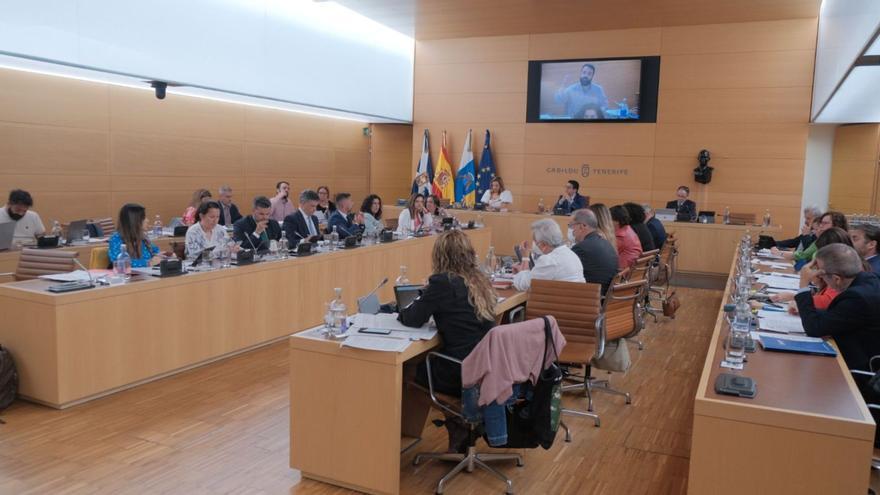
The Minister of Agriculture, Livestock and Fisheries of the councilJavier Parrilla, presented during his voluntary appearance at the plenary session in June a program of measures to guarantee the future and sustainability of beekeeping. An insular strategy with which it is intended to respond to the structural and health problems of the sector, promote professionalization, the conservation of pollinator populations and their habitats and promote research. Grill advanced that he will soon present this program at the Insular Table of Beekeeping, aligned with the national and European strategy for the protection of pollinating and honey species.
«Beekeeping is not just another productive sector, but rather has a transversal impact on the agricultural production chain and the conservation of our biodiversity; hence, the need to lay the foundations for a continuous and lasting project that contributes to the professionalization and consolidation of this activity », he pointed out.
The counselor highlighted the improvements during the current mandate: «In 2019 we find a divided, fragmented and unprofessionalized sector and with a worrying decrease in the number of farms and hives that today we have managed to change from the downward direction of 2018». In this context, he recalled that, In 2020, the Cabildo reactivated aid for complementary feeding of beestripling its budget compared to 2018, when the first and only call was articulated, going from 45,000 to 150,000 euros.
In just two years, in addition, the production of honey with denomination of origin has increased by 76 percent, reaching 22,554 kilos registered in 2021, and the number of hives has gone from 15,705 in 2019 to 16,283 in 2022. «A few figures that confirm the gradual recovery of the sector» points out Parrilla.
The counselor announced that work is being done to create, at the Casa de la Miel, an organic packaging and extraction line that will benefit both the level of production and the health guarantee.
Javier Parrilla referred to the promotion of integrated pest management and the preparation of a manual of good practices in agriculture to avoid and reduce harmful pesticides for domestic and wild pollinators.
He also pointed out the need to identify important habitats for pollinators in order to establish measures for their conservation, as well as to apply a monitoring program, promote the planting of attractive plant species for pollinators (rich in pollen or nectar), as well as of native seeds of ecologically appropriate varieties adapted to the area.
The program also collects organization of fairs and congresses linked to the beekeeping sectorand the implementation of business and entrepreneurship training sessions and activities.















